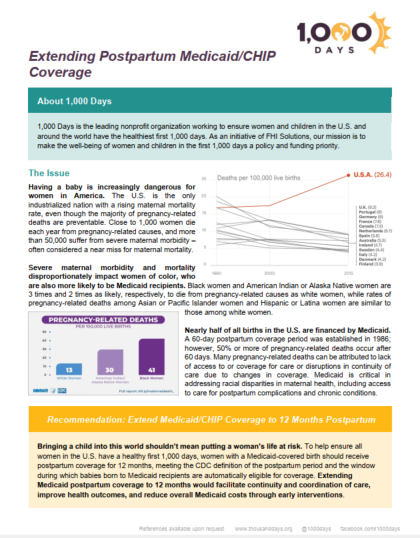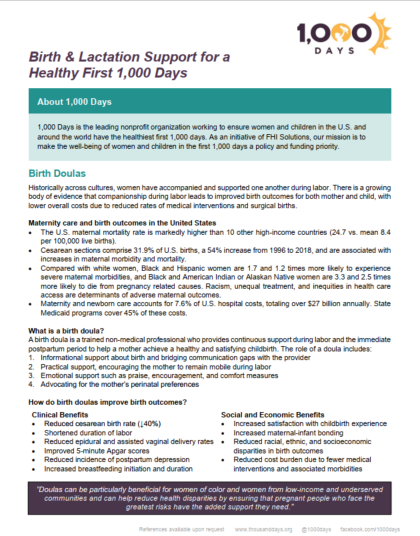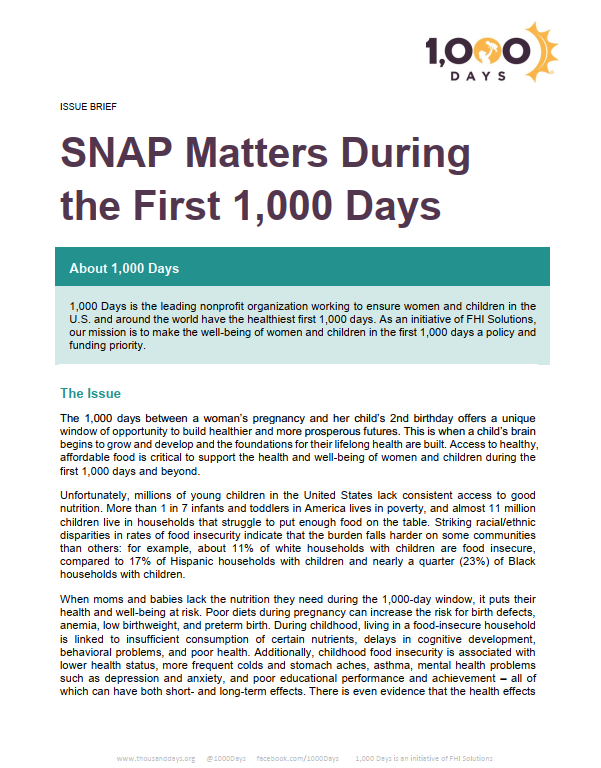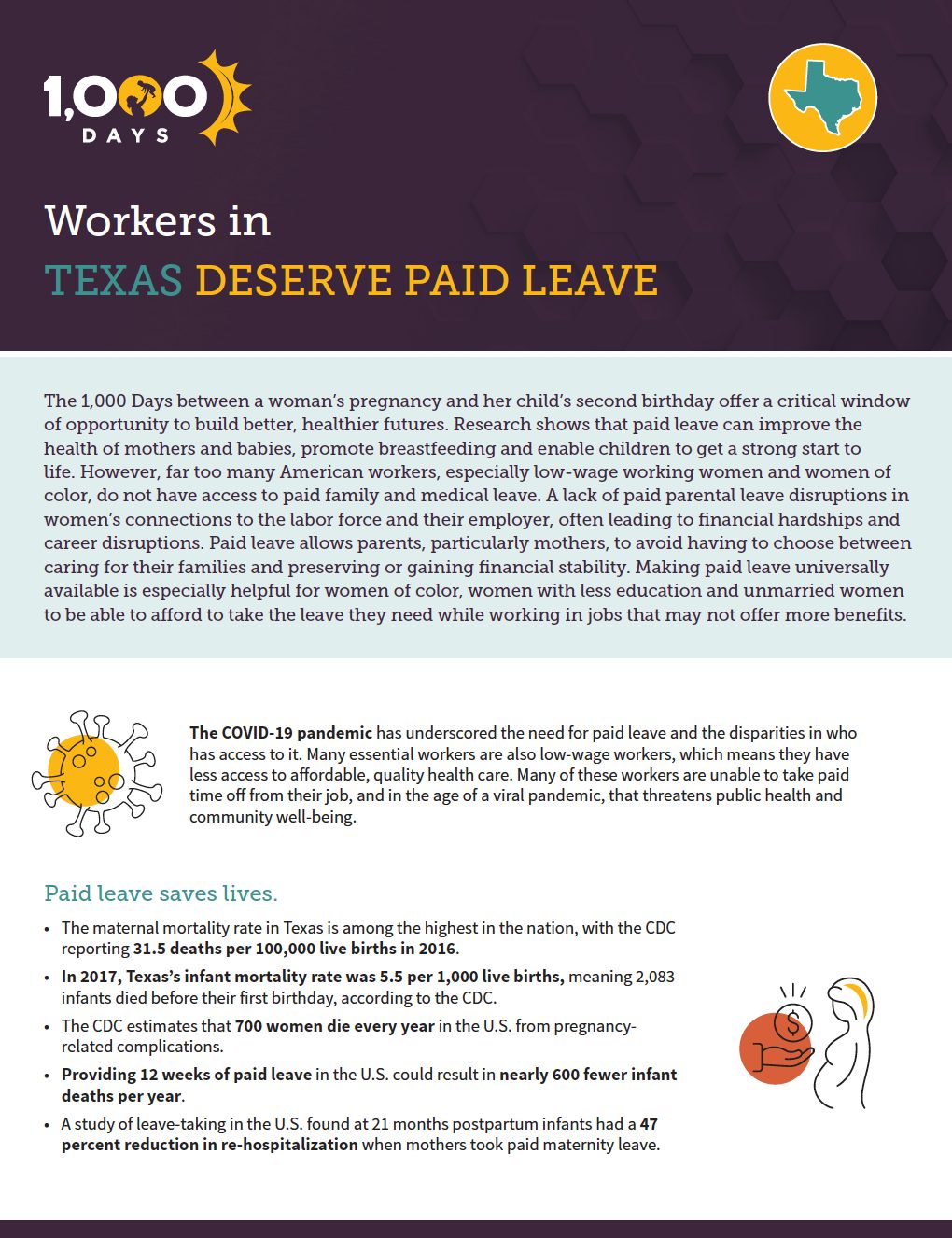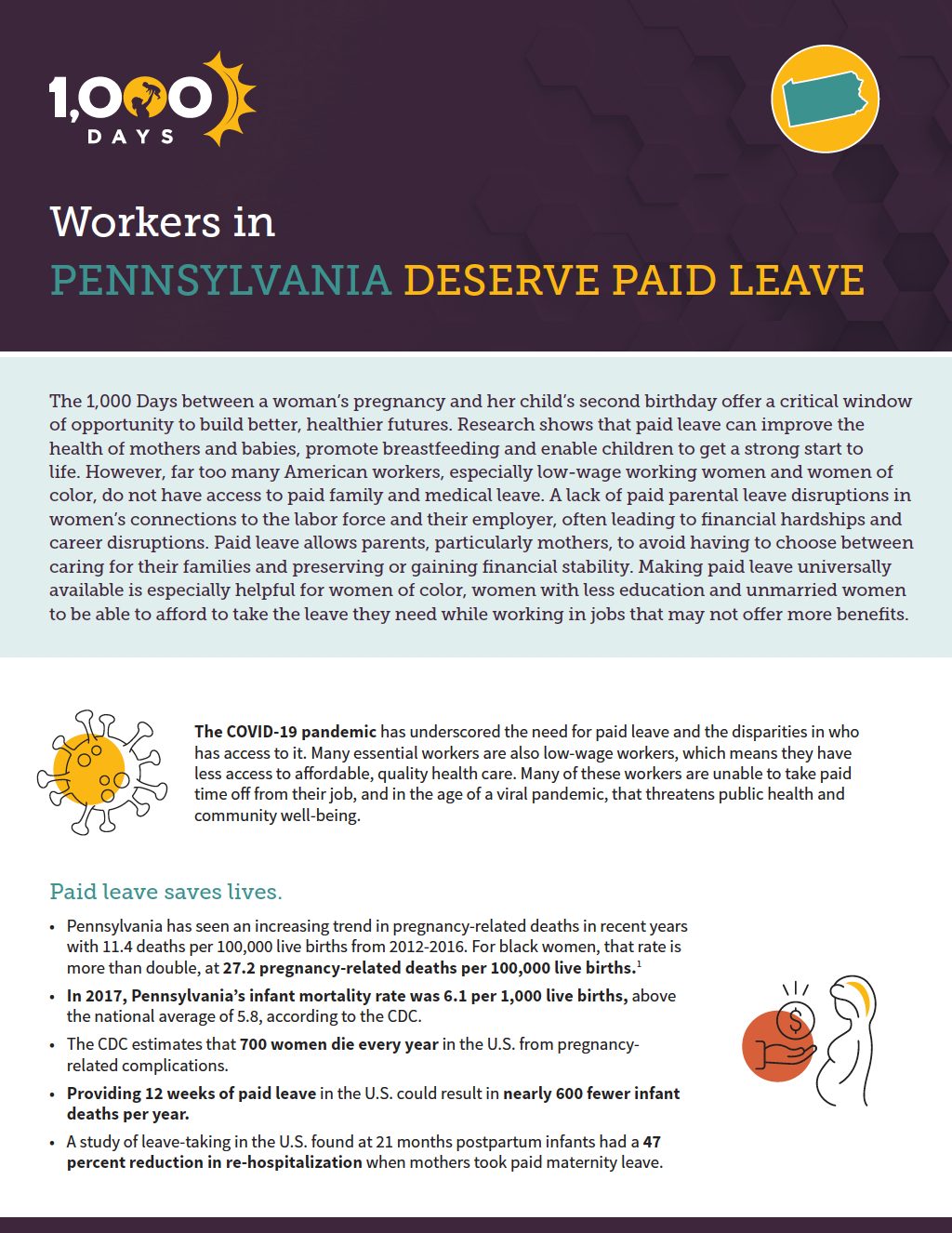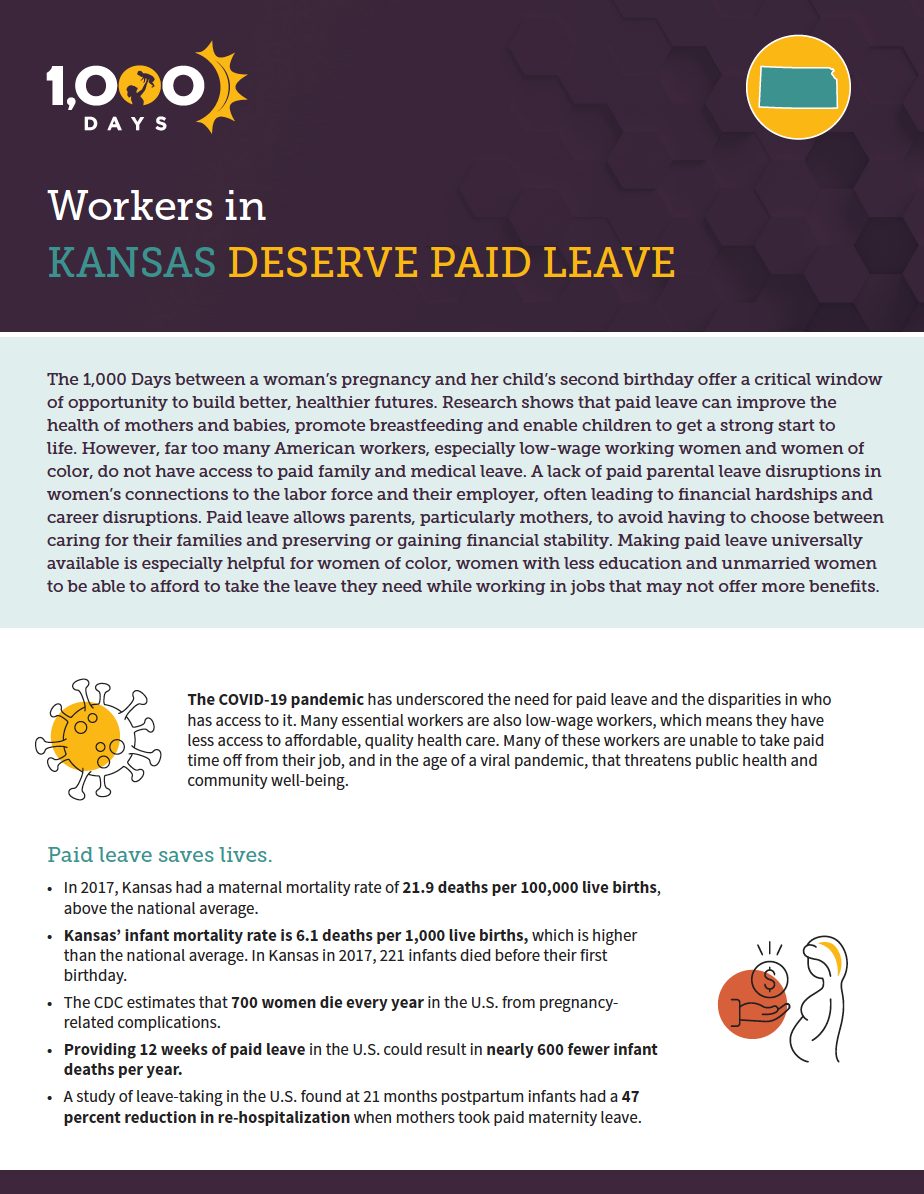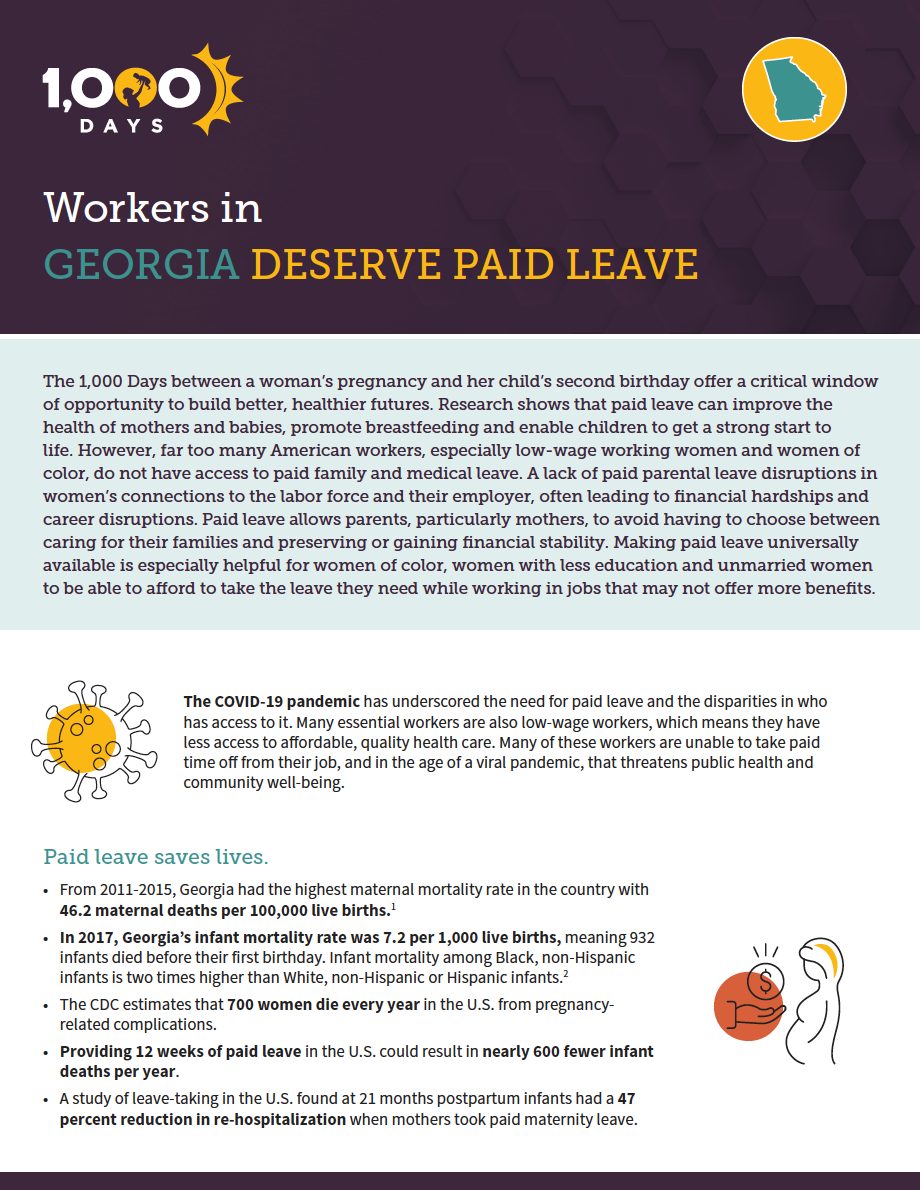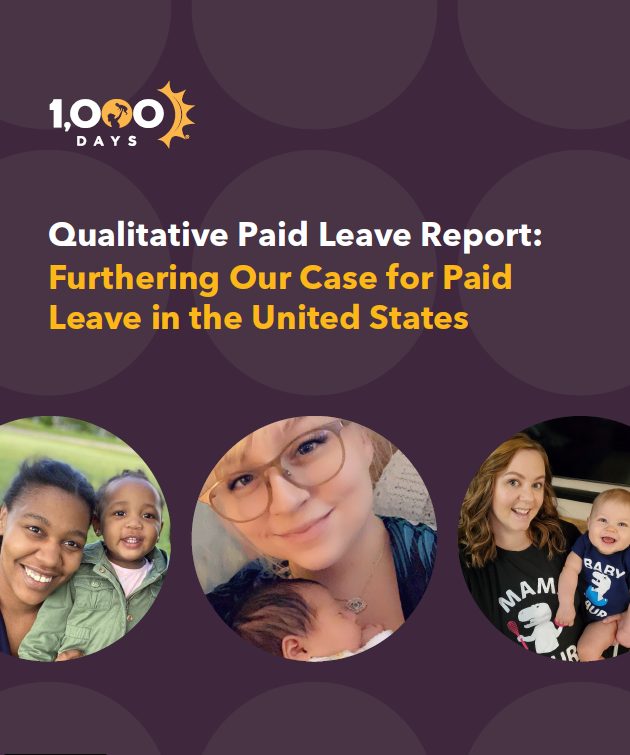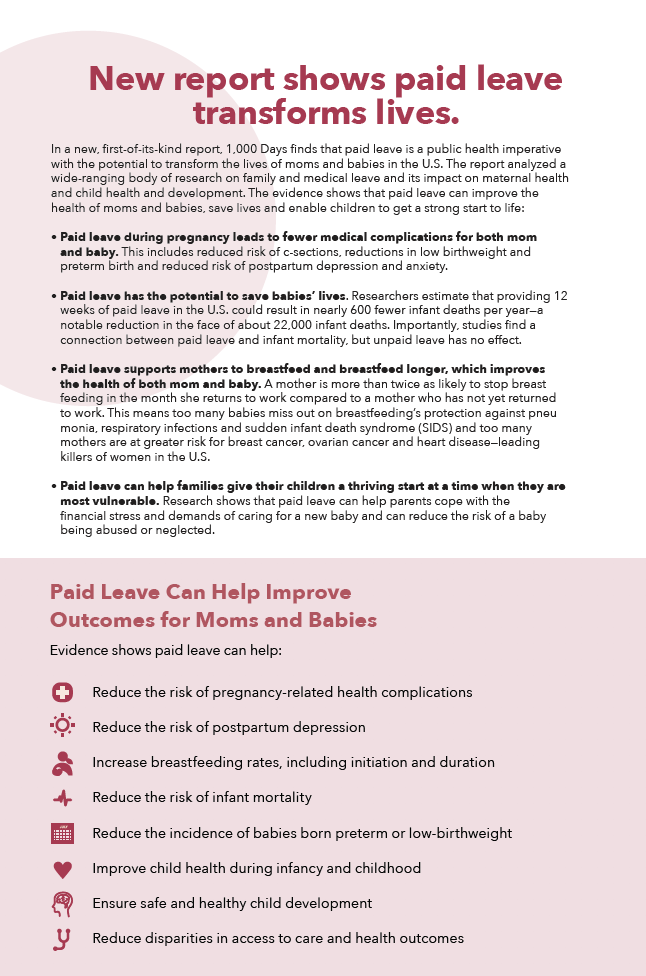Extending Postpartum Medicaid/CHIP Coverage
Nearly half of all births in the United States are financed by Medicaid, which covers women for 60 days postpartum; however, 50% or more of pregnancy-related deaths occur after 60 days, and women of color are at the greatest risk. To help ensure all women in the U.S. have a healthy first 1,000 days, women with a Medicaid-covered birth should receive postpartum coverage for 12 months.

